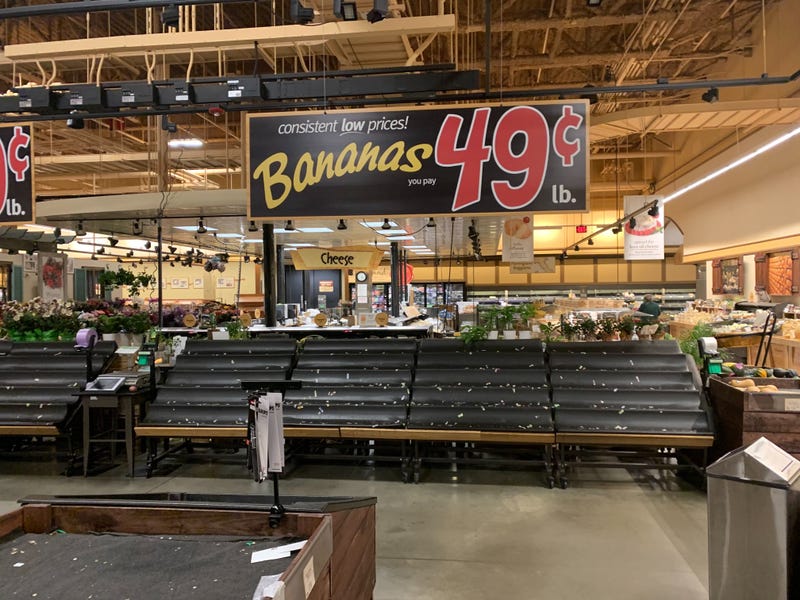
Thousands of people in the area have flooded supermarkets to stock up on grocery items, out of concern for the coronavirus outbreak.
The 24-hour King of Prussia Wegmans was stampeded overnight. Workers said it was one of the busiest nights ever.
“We decided to get here as early as we could to see if we could get as much food as possible,” said shopper Eric Horst. “We were meal planning at first. Then we figured we’d just have to grab whatever is available.”
"I tried to go to Giant yesterday — couldn’t even park,” added Lora Horst. “And I was seeing in our town Facebook group that the shelves were empty, so I was like, ‘Let’s wake up at 5:30 tomorrow and go to Wegmans, hopefully before everybody gets here’ — but no.”
Others are also deviating from their daily routines, trying to deal with the uncertainty they’ve developed over the coronavirus outbreak.
Ellen Kaufman definitely deviated from the norm: She wore vinyl gloves as she shopped for the essentials.
“They say that (gloves) don’t really do that much,” she admitted. “But I feel like they protect me from this bar on the shopping cart. Anything that helps, right?”
The psychology behind panic buying
People are stocking up on items like toilet paper, even though the rolls do not offer special protection against the virus. It's not considered a staple of impending emergencies, like milk and bread are.
So why are people buying up rolls more quickly than they can be restocked?
Panic buying begets panic buying
Images of empty shelves and shopping carts piled high with supplies have inundated news reports and social feeds. People see images of panic buyers, assume there's a reason to panic and buy up supplies, too, said Steven Taylor, a professor and clinical psychologist at the University of British Columbia.
"People, being social creatures, we look to each other for cues for what is safe and what is dangerous," he said. "And when you see someone in the store, panic buying, that can cause a fear contagion effect."
All those photos of empty shelves may lead people to believe that they must rush out and grab toilet paper while they still can. And what started as perceived scarcity becomes actual scarcity, Taylor said.
Social media is a huge player in novel coronavirus fear-mongering, Taylor said. Misinformation spreads with ease, and open platforms amplify voices of panic.
It's natural to want to overprepare
There may be some practicality in stocking up, says Frank Farley, a professor at Temple University and former president of the American Psychological Association.
With the CDC and other international health agencies now advising that certain populations should stay home and avoid contact with other people or crowds, it's natural to want to prepare, he said.
"(The novel coronavirus) is engendering a sort of survivalist psychology, where we must live as much as possible at home and thus must 'stock up' on essentials, and that certainly includes toilet paper," he said. "After all, if we run out of (toilet paper), what do we replace it with?"
You'll be spending money on toilet paper at one point or another — the only extra costs are the hassle of doing it sooner rather than later, contending with long lines and having difficulty finding it, Fischhoff said.
Since they'll eventually use the toilet paper, the analysis is different than if they'd bought something they likely wouldn't use, like a perishable item, he said.
The US Department of Homeland Security advises Americans to keep at least two weeks' worth of food, toiletries and medical supplies on hand anyway, but Taylor said most people don't. So when health officials publicly advise to stock up, they may take it to the extreme.
In the meantime, grocery store workers are restocking the shelves, bracing for another surge of panic buying.

